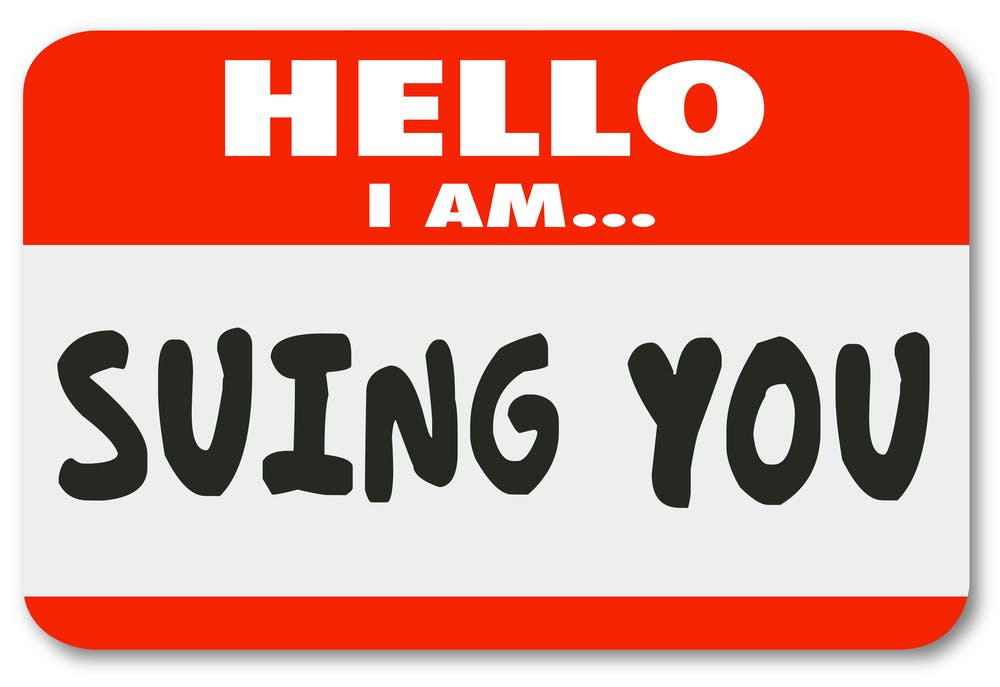Why do people sue their boss?
Most people would guess “money,” but that is dead wrong.
I’m a plaintiff’s employment lawyer and over the last few years I’ve talked to thousands of people about why they want to sue their former employer. In doing so, I’ve learned that employees sue for a variety of reasons, and people in HR should be aware of the main ones so they can prevent these situations from arising in the first place.
1. People sue because they feel they were treated like garbage
Have you ever heard this company platitude – “People are our most valuable asset?”
Everyone on Earth has heard it and, intellectually, every employee understands that they are being used for the betterment of the company. Emotionally, however, people will never accept that they are simply a resource that the company can throw away when no longer needed. That is contrary to fundamental principles of human dignity.
Fired employees don’t call employment lawyers like me because the law was broken. Regular folks have no clue whether the law was broken. They call me because they feel dehumanized.
This is by far the No. 1 reason people get on Google and search for a lawyer. They are emotionally upset about how their boss treated, demoted, or fired them.
So take note: Treat your employees with respect (especially the crazy ones) and your company’s chances of getting sued will decrease dramatically.
2. People sue because they were fired after engaging in protected activity
Most people don’t know the law, but they do know when something seems fishy.
For example, I get several calls a week that go something like this. Me – “Why did you get fired?” Employee – “They didn’t give me a reason but I complained the week before about sexual harassment.” Hmmm … That’s a red flag.
In employment law we call this temporal proximity – meaning the time between the protected activity and adverse employment action are so close together that timing alone can be an inference of discrimination. This becomes an especially big red flag when the employee was never written-up or reprimanded before she complained.
This is another reason why HR should promptly write-up underperforming employees.
3. People sue because their manager was allowed to behave badly
I’ve sued lots of “good” companies that are owned by “good” people that are full of “good” human resource personnel.
But it only takes one rogue manager to sexually harass a subordinate. It only takes one manager to fire a girl because she has cancer. It only takes one manager to tell his team to work off the clock.
In my experience, nine times out of 10, these rogue managers have been on the company’s radar before and the company failed to adequately supervise, reprimand, or fire them.
Believe it or not, American juries are very reluctant to award punitive damages in employment cases. That reluctance goes out the window, however, when the jury hears that a manager at the company had repeatedly harassed several women and the company knew about it but did nothing.
Employment lawyers love cases like this. HR managers should fear this scenario and should act accordingly when they hear about a manager acting inappropriately.
4. People sue when owner greed is out of control
Owners are in businesses to make money.
Employees know that they are there to help them make money. But, when an owner of a company drives a Ferrari and simultaneously tells a valued employee that the company “can’t afford” to give her a raise from $8 an hour to $8.15 an hour, she is going to call a lawyer if she gets fired.
I recently had a case where the owner of the company told his employee, “Well, you’re not the one driving the Mercedes Benz, are you?” I think the Bible, in Proverbs 18:12, says it best – “Before destruction the heart of man is haughty, and before honor is humility.”
5. People sue when rules are not enforced fairly
While this seems like HR 101, you would be amazed at how many times I’ve heard someone say, “Well, the HR guy is really good friends with the [bad guy] and lets him do anything he wants.”
When one employee is allowed to break the rules, but another is disciplined for breaking the same rules, the reprimanded person almost always thinks the law is being broken. This is exacerbated (obviously) when the person who is allowed to break the rules is a white guy but the person who is disciplined is a minority.
There are many more reasons why employees decide to sue, but if companies simply treat their employees with respect, enforce the rules fairly, fire rogue managers, and use some common sense, people are far less likely to pick up the phone and call an employment lawyer like me.
